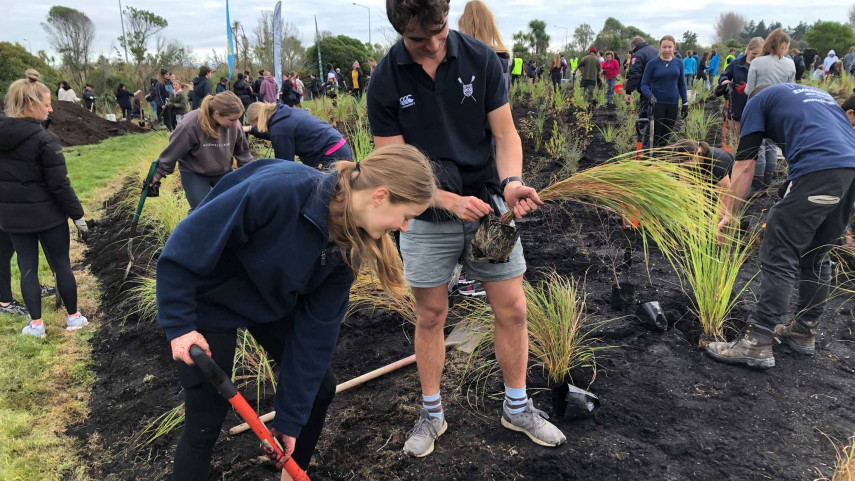
Innovative school nursery programme grows with Council support

Share this story
A charitable trust that is working with Christchurch schools to populate parts of the former red zone with native plants is getting a $61,400 grant to expand its operation.
The money will come from the Red Zones Transitional Use Fund that was set up by Christchurch City Council to provide support to projects and events that help create activity and vibrancy in the former red zone areas, ahead of their longer term regeneration.
“The Eco-Action Nursery Trust is doing an amazing job at both connecting young people with the former red zone area along the Ōtākaro Avon River Corridor and educating them about the process for endemic native revegetation,’’ says Sustainability and Community Resilience Chair Councillor Sara Templeton.
“The grant we’ve approved today, on the recommendation of the Te Tira Kāhikuhiku Red Zones Consultative Group, will allow the trust to expand its operation into more schools and progress with its plans to plant stretches of the Ōtākaro Avon River Corridor with tens of thousands of natives.’’
The Eco-Action Nursery Trust was set up two years ago. It collects endemic native plant seeds, under permit from Travis Wetland and Riccarton Bush, propagates seedlings and grows plants at a central nursery at Christ’s College, using volunteer school students and supervisors.
It is working with 16 schools to help them establish satellite nurseries, providing them with a start-up kit of 500 to 1000 plants and all the equipment they need to successfully grow them.
Eco Action Nursery Trust Chair David Newton says the $61,400 grant from the Red Zones Transitional Use Fund will allow it to get more schools and more young people involved in the growing and planting process.
Mr Newton, who is a teacher, says many young people feel burdened by impacts of climate change.
Empowering them to grow native trees and plants that sequester carbon gives them a practical way to make a difference, which helps their mental wellbeing.
“The native trees and plants that are being grown by the students through the nursey programme provide much needed food and habitats for native birds and lizards, which is another important focus for us,’’ Mr Newton says.
The Trust has a five-year lease on a parcel of land off Chimera Crescent, in the Ōtākaro Avon River Corridor, that it has begun planting with the help of the school students, their families and the local community.
It also has a lease on another area of land off Gayhurst Terrace that will be ready for planting in winter 2022. It has eight schools waiting to join its programme and expects to propagate 20,000 plants this year through its school nursery programme. Next year it is aiming to propagate 30,000.
“The Trust’s planting events have been incredibly popular over the last two years, with community members joining hundreds of school students to restore the red zone,’’ Cr Templeton says.
“The Trust operates its programme entirely through the work of volunteers so all the funding that it gets is used for the materials and equipment that it needs to carry out its nursery programmes and planting events so this is a worthwhile initiative for us to support.’’
